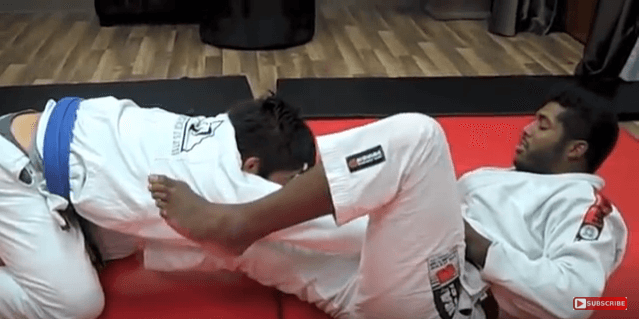In a recent conversation with a blue belt, I heard something that got me thinking… My blue belt friend had been rolling with an higher belt (purple or brown) and caught him with a “mercy” lock (the technique Vagner Rocha hit on Marcin Held at Kasai) and the upper belt responded by calling the move “bullshit”. This got me thinking about 3 things:
- If a move gets the results we are looking for is there a possibility that in spite of the results the move is invalid?
- What makes a move valid or invalid to begin with?
- Why do certain moves that shouldn’t work actually work?
People tap for many different reasons in training, sometimes we tap because we legitimately think we’re going to get hurt, other times we tap because the discomfort caused by the position we are in is simply not worth continuing. I’ll eat a lot more damage in competition, especially if money is involved, than I will in training. That being said I don’t particularly want to eat damage to begin with, and when caught I usually tap pretty quickly to keep myself safe. This means that sometimes I will tap to a move that may or may not even be there.
I experienced this sort of preemptive yesterday night rolling with a blue belt in his mid 40s who tapped as soon as I started going for a leg entanglement, after he tapped (and I let go) I informed him that I was nowhere near the lock yet, and that even if I were able to get to it I’d give him ample time to solve the position. That being said, know your training partner, and if you don’t know them, it may be safer to tap early than to suffer injury…
Based on this: the results we see in training CAN BE deceiving. One thing I’ve put a ton of time and effort into is setting up leglocks when someone else takes my back, however time and again I’ve found that people in competition will eat a popped ankle, and limp around for the rest of the day, just to get the win. Those same people will NOT do that in training. That means that in the context of applicability in competition those techniques are actually not as great as their results in training may indicate.
Here’s the thing with submissions: the only thing that determines whether or not a submission is legitimate is whether or not the other person tapped. The “mercy” submission probably wouldn’t get me to tap because I probably wouldn’t interlace my fingers with another grappler. But if I interlaced my fingers with another grappler and I was then forced to tap, their submission is legitimized by my tap.
The same thing applies to “pain moves”. If you tap to a “pain move” it was a legitimate submission. Don’t think it’s legitimate? Don’t tap. But also don’t blame your training partner if that “illegitimate submission” causes “legitimate” injury.
As a rule, when I train I try to ask myself whether or not the technique I am applying would beat a high level grappler. Sure, I can tap many white belts by simply dropping pressure from side control, but relying on that as a submission will lead me to lose matches. Similarly, if my friend devotes all of his time and effort to developing his “mercy” game, chances are he’ll get his butt kicked anytime he competes. We have a finite amount of time to train, we are better served learning and practicing techniques that will draw a tap from a larger percent of the grappling population.
A great example of this is a grappler that I know who, as a new white belt figured out that against other similarly crappy white belts he could secure ezekiel chokes from literally anywhere, inside the closed guard, bottom mount, ANYWHERE. We all told him to stop relying so heavily on that move, that while he could tap other white belts from anywhere with it, and even could tap some blue belts with it, his chances long term of using this technique consistently to win were very low. He didn’t listen. Now he sucks and hasn’t won much. However, none of us had the audacity to tell him the move is illegitimate, and if he catches someone with it, they have absolutely no grounds to criticize him at all.
The tap doesn’t lie. But it can deceive. Don’t let momentary success build your game in the wrong direction.

Emil Fischer is a Jiu-jitsu Black Belt and BJJ competitor training under Pablo Angel Castro III at Strong Style MMA in Cleveland Ohio. An avid writer and competitor, Emil has amassed an extensive competition record. Most notably, Emil is a 2 time gold medalist at the IBJJF No Gi Pans, and has a submission victory record of 5-1 at Fight To Win Pro which includes purple belt no-gi light heavyweight championship
Emil’s sponsors are Impact Mouthguards, Cleveland Cryo, The Terphouse, Meerkatsu, Eddys on Coventry and Nottarookie. He is a Ludwig Van and Vanguard Kimono brand ambassador.

